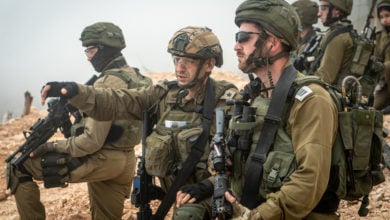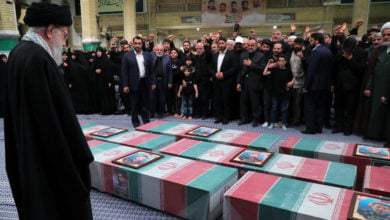United Nations envoy Ould Cheikh Ahmed has announced that peace talks will take place April 18 between opposing sides in Yemen’s civil war, which has escalated into a regional conflict. A U.S.-backed and Saudi-led coalition has been carrying out both bombing and ground operations in the country for over a year in an attempt to prop up the government of Abdrabu Mansur Hadi, which was overrun last year by a rebel movement based in the north of the country known as the Houthis.
A ceasefire is planned to take effect one week before the talks begin. Over 100 prisoners were released in a swap between the two sides on March 28.
The negotiations will be held in Kuwait. While the country is a member of the alliance attacking Yemen as well as the Saudi-led Gulf Cooperation Council, it was always an awkward fit in the military coalition and compared to other GCC countries has historically had good relations with Iran, which is perceived to be close to the Houthis.
A few days after the ceasefire and peace talks were announced, hundreds of thousands poured into the streets of Sana’a, the capitol city which is controlled by the Houthis. The massive demonstration was held to mark the one year anniversary of the Saudi-led intervention and protest the ongoing aggression. While Yemeni politics is highly fractured, there is widespread opposition to violations of the country’s sovereignty by foreign powers.
The new King’s gamble
The coalition’s war on Yemen was unleashed to scramble a geopolitical map that was increasingly unfavorable to the Saudi regime. After the death of King Abdullah in 2014, current King Salman along with his son, Deputy Crown Prince and Minister of Defense Mohammad bin Salman, has fanatically pursued an anti-Iranian foreign policy.
In the months leading up to the Saudi-led coalition’s attack, U.S. and Iranian negotiators were finalizing the terms of the Joint Comprehensive Plan of Action – the so-called Iran nuclear deal. While U.S. imperialism still desires regime change in Iran, the JCPOA signals a major softening of its position. With the meteoric rise of ISIS and chaos engulfing countries across the Middle East – a consequence of U.S. intervention – the Obama administration hoped for a limited partnership to stabilize the region.
This infuriated Saudi Arabia, whose monarchy owes its existence to the United States and views as an existential threat any U.S. moves away from its traditional client regimes. To force the U.S. government to reaffirm it alliance, the new King decided to launch a dangerous military escalation. The United States then announced its support for the operation and is providing logistical support.
The intervention came at a time of extreme instability in Yemen, embroiled in a multi-sided civil war. The Saudis’ main enemy in the country are the Houthis, who are in an alliance with former President Ali Abdullah Saleh. Saleh was ousted by mass protests as part of the Arab Spring, but retains the loyalty of large sections of the armed forces and has opportunistically forged a partnership with the Houthis, even though he had waged war on them when in power.
On the opposing side, Hadi is supported by his General People’s Congress party, which split into pro-Saleh and anti-Saleh factions following his ouster. They are allied with the Southern Movement and (uncomfortably for Saudi Arabia) the Islah party, the Yemeni Muslim Brotherhood group.
The Southern Movement seeks the restoration of the South Yemeni state that existed as a socialist country before unification with the north in 1990. Their interests align with Hadi, who is himself a southerner, in opposing the northern Houthi’s takeover, but differ substantially in long-term goals.
Stalemate and suffering
The Saudi intervention saved the Hadi government, which had largely fled the country and was on the verge of being pushed out of Aden, their last stronghold. Pro-Hadi forces went on to secure most of the south of the country.
However, their momentum stalled and developments on the battlefield have largely ground to a stalemate. Heavy fighting continues throughout the country, and has caused a tremendous humanitarian crisis. Half of the country’s population is in need of food assistance and hospitals cannot access basic supplies.
The suffering is perhaps most intense in the besieged city of Taiz. Over the course of a nearly year-long battle for control, the city’s infrastructure has been destroyed and 70 percent of the population fled. Pro-Hadi forces recently made a breakthrough, but the fighting is not over.
The peace talks were announced as fears grew in Saudi ruling circles that they would find themselves trapped in a quagmire in Yemen. The collapse of prices in the global oil market, which finances 73 percent of the Saudi budget, means that they can ill afford a protracted military conflict.
Al-Qaeda makes gains
An especially troubling byproduct of the civil war is the rising power of Al-Qaeda in the Arabian Peninsula, the group’s official branch in Yemen. With its hardline Sunni sectarian orientation, AQAP has focused on combatting the Houthis, who follow the Zaydi branch of Shia Islam which is unique to Yemen.
The Saudi-led coalition has not made any serious effort to contain AQAP. Saudi Arabia and al-Qaeda share the ultra-right wing ideology of Wahhabism that seeks to impose religious law on all aspects of life. The two have a long history of cooperation, and have forged a working relationship in the Syrian civil war.
Shortly after the Saudi attack began, AQAP seized Mukallah, the fifth largest city in the country and the capitol of Hadramout province. Last December, the group captured Zinjibar, the capitol of Abyan province. AQAP also controls substantial territory in Shabwa province.
AQAP is the supposed target of the CIA’s murderous drone program that has killed hundreds. Studies have shown that drone strikes almost always kill civilians, not fighters. By backing the Saudi-led military campaign, U.S. imperialism is continuing its long-standing policy of hostility and disregard for Yemen’s right to self-determination.






